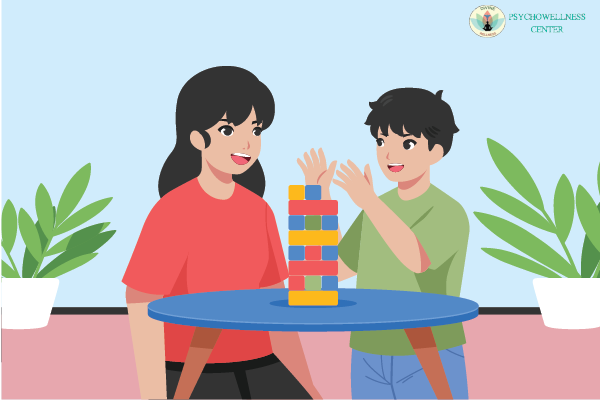Play therapy can be helpful for treating behavioral issues or mental health conditions. People with developmental problems, such as autism and attention deficit hyperactivity disorder (ADHD), might also use it as a coping method. Play therapists mostly work with children, though they also sometimes use this method with adults and teenagers. Many Therapist in delhi with licenses use play therapy. Among them are social workers, therapists, and Online counselor.
What is play therapy?
Children can benefit from play therapy, a type of psychotherapy, to work through their emotional and mental problems. Play therapy makes use of the way that children express themselves and learn about the world through play. Children are typically treated with play therapy. However, it can also be applied to grownups. Children between the ages of three and twelve are the typical target audience. Play therapy’s main objective is to enable kids who might have difficulty expressing themselves or their feelings to do so through play. An individual will be guided by a play therapist through play therapy in an unlimited, secure setting where they feel most at ease expressing them. Play therapists employ games, board games, and other play activities that a child could enjoy. Sometimes a play therapist will ask parents, guardians, or other family members to join in on the playing activities. A therapeutic relationship is developed between the client and the therapist by participation in a shared activity. Children who might be wary of strangers can benefit the most from this.
Benefits of play therapy
Although some kids can be reluctant at first, confidence in the Counseling psychologist usually grows. The child may become more imaginative or talkative in their play as they feel more at ease and as their attachment grows. The following are some possible advantages of play therapy:
-
Assuming direct responsibility for specific behaviors
-
Building coping mechanisms and innovative problem-solving
-
Problem-solving abilities,
-
Self- respect
-
Empathy
-
Lowering of anxiety
-
Learning how to completely experience and communicate emotions
-
Improved social abilities
-
Stronger ties within the family
When play therapy is used
-
Dealing with palliative care, chronic disease, or medical procedures
-
Developmental issues or educational challenges
-
Issues with aggressive or hostile behavior in school
-
Family problems, such as divorce, separation, or the passing of a close relative
-
Catastrophic events or natural disasters
-
Domestic abuse, neglect, or violence
-
Disorders of anxiety, sadness, grieving, hunger, and urination
-
Attention deficit hyperactivity disorder (ADHD)
-
Autism spectrum disorder (ASD)
Types of play therapy
-
Directive play therapy
When using directive play therapy, the therapist engages the child directly and guides them through structured play exercises to encourage self-expression. Usually, they’ll give the child clear directions and watch over them as they follow them.
-
Non-directive play therapy
Non-directive play therapy uses an environment that is less controlled. The therapist largely prevents from interfering as the child expresses themselves through play and any activities they may prefer.
Techniques of play therapy
Play therapy allows for the application of a wide range of treatments. The approach taken during a therapy session is mostly determined by your child’s requirements and the play tools they are most at ease with. A normal 30- to 45-minute play therapy session usually lasts. The therapist will make a welcoming and secure atmosphere for the child to play in during a play therapy session. After that, the therapist will watch as the kid plays with the offered toys. you can search for the Psychologist in delhi.
More targeted play activities that address the problems the kid is having will be presented as the child becomes more at ease in the therapist’s playroom. The following are some of the methods that play therapists employ most frequently are as follows:
-
Building blocks
-
Art
-
Sand play
-
Board games
-
Play with dolls
-
Puppet play
-
Tea party play
-
Cards games
-
Strategy games like chess or checkers
-
Hide-and-seek
-
LEGO play
Play therapy for adults
Play, like play therapy, is not just for children. Even adults and teenagers occasionally struggle to put their deepest emotions into words. Adults suffering from the following conditions may find play therapy helpful:
-
Intellectual disabilities
-
Dementia
-
Palliative care, and chronic illness
-
Usage of drugs
-
Trauma and physical abuse
-
Anger behavior problems
-

